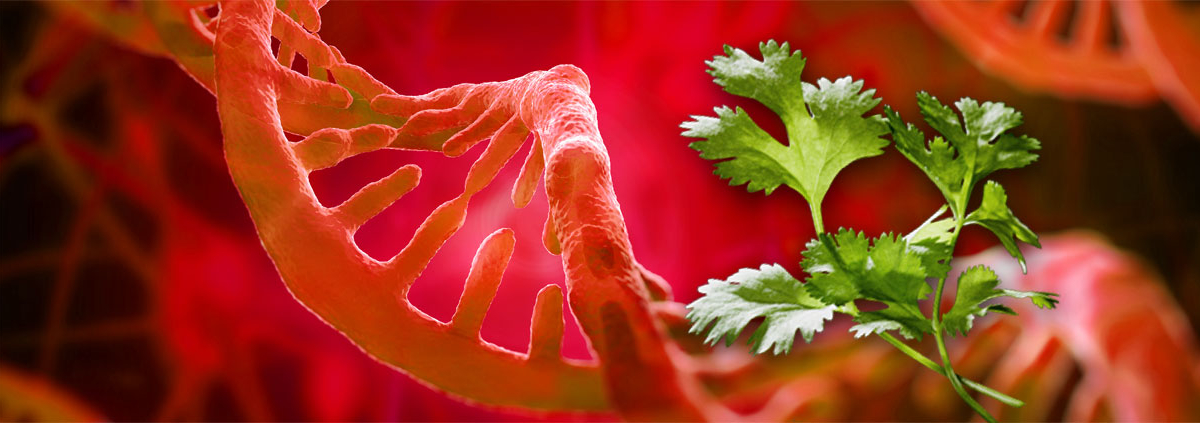Why I Hate Cilantro
The All of Us genetic testing results I told you about Tuesday included four more genes; by examining the results, these genes explain a lot about my personal tastes. These are not world-changing genetic analyses such as risk for cardiovascular disease or celiac disease, but they’re nevertheless interesting. Here’s what else I found out about myself from the results.
Bitter
Remember, there are five tastes: bitter, salty, sour, sweet, and umami. Evidently not everyone tastes foods the same way; I didn’t know that there are at least 25 different types of bitter receptors. I have a gene that allows me to taste flavors that are considered bitter. There are at least 550 foods identified as bitter; some I naturally like such as coffee. We can adapt to tastes regardless of our genes, so you may develop an appreciation of bitter foods if you don’t like them now.
Earwax
I have a normal gene that allows me to produce wet earwax as opposed to dry, flaky earwax. In the analysis I received, there’s a long explanation about earwax and what it does. One function of earwax is to keep the ear drum dry when water enters the ear canal; it made me wonder if that’s why some people are more prone to “swimmer’s ear” than others.
Lactose Intolerance
There’s a gene that, depending on its location on your DNA, will allow you to produce more lactase, the enzyme that breaks down the milk sugar lactose. If the gene is in a different position, you may lose your ability to produce enough lactase, and thus you become lactose intolerant. Mine is evidently in a good position because I digest dairy products just fine.
Cilantro
I have the “I hate cilantro” gene. Actually, that’s an overstatement. If you have the gene mutation, you have a slight chance of disliking it, somewhere between 3% and 21%. To me (and Paula), it strongly tastes like soap instead of the refreshing citrus flavor most people experience.
Those were the genetic results I’ve gotten so far—nothing earth shattering but interesting nonetheless. It explains a lot, including that in spite of your genes, you can overcome some of your genetic tendencies and learn to love cilantro.
Consider joining the All of Us Research Program. You’ll be contributing a lot and you just might learn some interesting things about your genes as well. Check it out at https://www.joinallofus.org//#.
What are you prepared to do today?



 AllOfUsPeople
AllOfUsPeople




